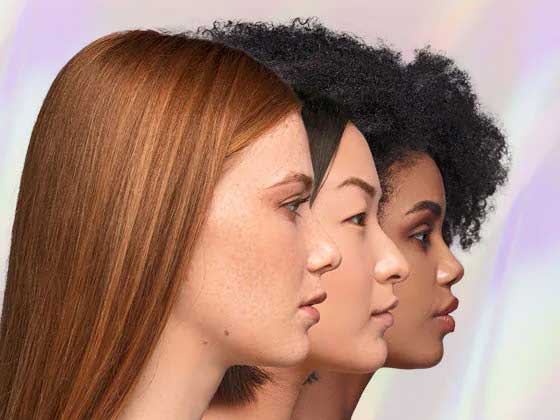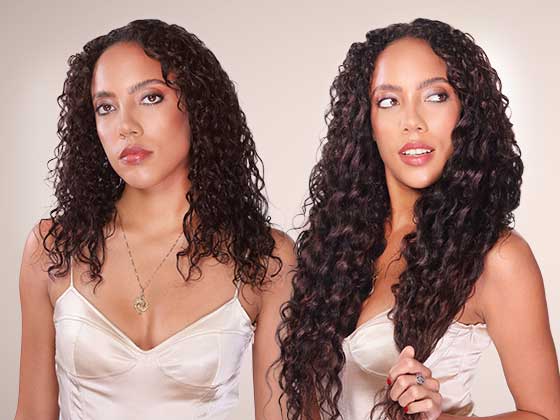When you hear the words “Black Market Goods”, chances are you think of electronics, or other luxury goods, but definitely not hair extensions. Yet, around the world thieves and even unethical governments that operate within the law who exploit women to get a piece of the 10 billion industry of human hair. As professionals, it is our duty to ensure that the products we are using on our clients do not come at the cost of the freedom or dignity of other women. Moreover, in some cases, the hair itself can be unsafe for use.
A Global Trade In Exploitation of Women
In July of 2020, a cargo freighter arrived at the Port of New York and New Jersey and immediately on docking were raided by US Customs and Border Protection officers. As the officer reviewed the ships logs and manifest with the captain crew, another detachment of officers began opening cargo containers to find them filled with bundles of hair extensions. While international shipments of hair from China, Brazil and India happen almost every day in the United States as part of a $10 billion dollar industry, what made this hair of particular interest to officers was where it came from.
It made headlines throughout the United States as this 13 ton shipment of hair had been shipped from Xinjian, China. Horrifyingly, US Customs and Border Protection officers determined that the hair had come from millions of Uigher Muslins and other minorities that were being held in Chinese prisons. It is unfortunately very common as the global demand for hair extensions has led to booming exports from countries with questionable track records when it comes to human rights. In this and many countries the women and young girls are paid just dollars for their hair, which they accept to feed their families for a week. It is the exploitation of the disadvantaged and has been going on for hundreds of years.

Beyond the human toll, there is the question of sanitation and safety as the black market has flooded the United States with hair that has not been handled properly, cleansed or even checked. Cheap, affordable hair marketed as “Brazilian Hair”, doesn’t in fact come from there and is actually “standard hair” collected from the floors of salons, barber shops and even hair brushes from poor countries around the world.
Once here, they all too sadly lead to some horror stories as the hair is not properly cared for.
The Tide is Turning As Consumers Want Ethical Choices
As hairdressers we’re used to the words natural, vegan, fair trade, ethical and sustainable in this day and age and as we’ve educated our clients over the decades, they’ve become smart shoppers. This shift has made its way to hair extensions as well, as increasingly they want to know where their hair is coming from.

Ethical sourcing means getting hair (or any product really) in a manner that respects the person, process or planet and does harm to none. One of the reasons that hair from India is highly coveted is because the export of human hair has been done for centuries in an ethical manner. There, mostly Hindu women donate their hair lovingly to temples as part of their religious beliefs, a gift to other women. Since hair is perceived as a God given beauty asset, shaving and donating it to the temple is considered letting go one one’s ego and showing gratefulness and humbleness in front of a spiritual power greater than us. In exchange, they often make vows and ask for blessings in return, humbly requesting for help with some of the many challenges in life. Today, India exports over $220 million U.S. dollars worth of hair every year to over 106 countries.

The Ethical Journey of Every Strand of Perfect Locks Hair
Perfect Locks ONLY sources ethically sourced, 100% human hair and moreover we can trace the journey of every strand of hair used in all of our wefts, tape-ins, fusion hair, etc.
Over 18 million devotees visit the Venkateshwara Temple each year, at Tirumala in the south Indian State of Andhra Pradesh. For those devotees who make the journey to pay their respects to an incarnation of Vishnu, nothing could be more sacred or give them more joy.
Every day, 12,000 of these pilgrims offer their hair as a sacred act to Vishnu, an act of thanks to be blessed by the deity who above all protects and sustains all that is good in society. At temples all over India, this hair is lovingly gathered and becomes the greatest, most beautiful hair in extensions, weaves and hairpieces to give confidence to women the world over.
Hair that was once simply burned and discarded as part of the ritual now has brought much needed foreign money to the local regions and directly goes back to the community. It is used to feed the needy, provide hot meals, as well as build schools and provide free education and even develop housing and supporting other local businesses.
This hair that was once burned, is now bringing in meaningful value to the very community that donates it, it’s a beautiful synergy of letting go, women the world over being given a gift of love to feel good, and in return the people and their community thrive. This humble offering of letting go and giving their hair away to other women all over the world helps them and their families and lights their very homes. This is ethical sourcing, a continuum of respect, of giving and getting back, a positive experience and energy throughout. It’s what we believe in.
Why aren’t more people talking about the ethics of human hair? They’re starting to, and we want you to be prepared to answer the questions your clients will have for you about the origin of the beautiful hair you are installing for them. The background of hair is an important aspect you should familiarize yourself with as you dive deeper into the world of hair extensions.

















